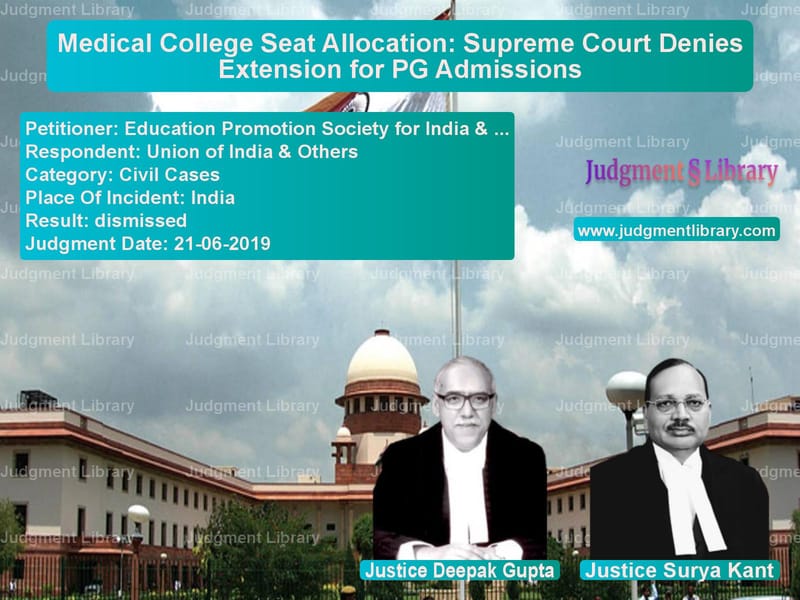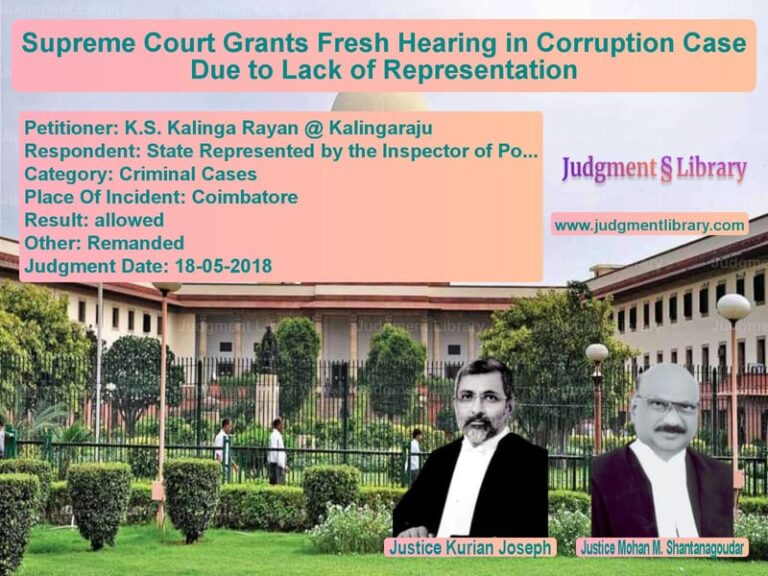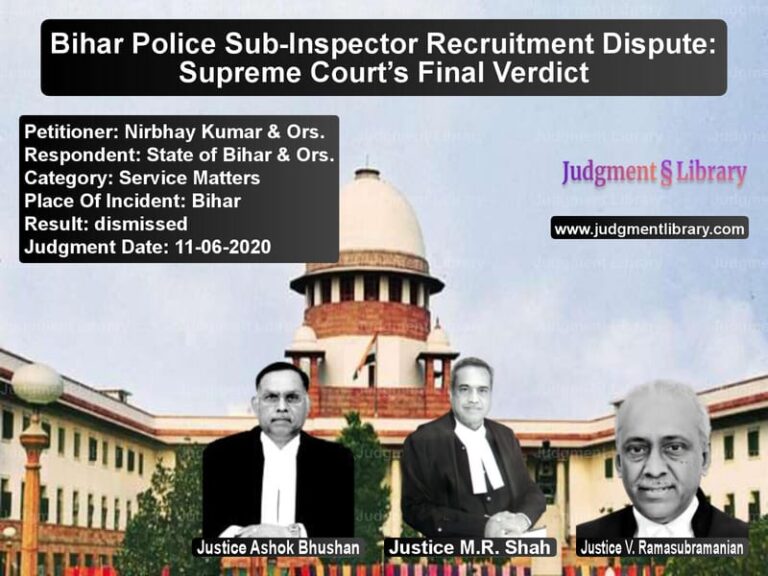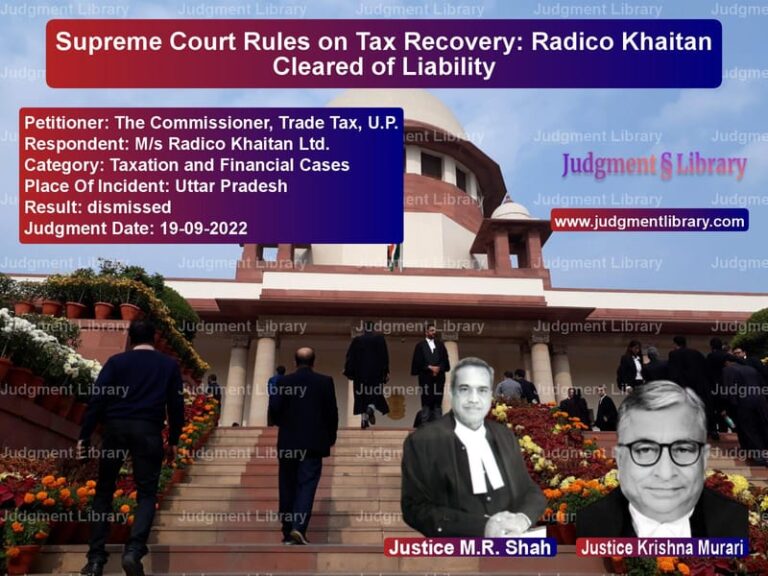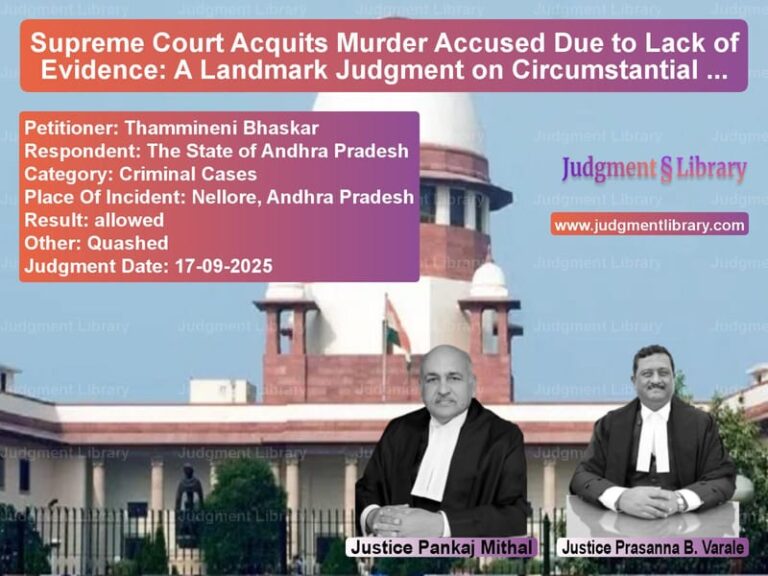Medical College Seat Allocation: Supreme Court Denies Extension for PG Admissions
The case of Education Promotion Society for India & Another vs. Union of India & Others revolves around the plea for an extension of time for medical colleges to conduct counseling for postgraduate (P.G.) medical courses due to a large number of vacant seats. The Supreme Court, however, rejected the plea, citing the need to maintain the sanctity of the admission schedule.
Medical education in India is governed by strict timelines for admission and counseling. The petitioners argued that numerous seats remained unfilled and requested an extension to accommodate more students. However, the Union of India opposed the request, arguing that granting an extension would disrupt the integrity of the admission process and set an undesirable precedent.
Background of the Case
The petition was filed by the Education Promotion Society for India, which represents several educational institutions, including medical colleges offering P.G. medical courses. The petitioners contended that despite spending large sums on infrastructure, medical colleges were unable to fill all their seats due to the rigid admission schedule.
The petitioners pointed out that India faces a shortage of qualified doctors, and the government itself had allowed an increase in seats at government medical colleges without proportionally increasing infrastructure. They cited past instances where the Supreme Court had granted extensions for admission deadlines in medical education.
Arguments of the Petitioner
Senior counsel Maninder Singh represented the petitioners and submitted the following arguments:
- Many medical seats remained unfilled despite a significant investment in infrastructure.
- The government’s own policies encouraged an increase in medical seats, demonstrating an intent to produce more doctors.
- In previous cases, the Supreme Court had permitted an extension of deadlines for medical admissions.
- A similar relaxation should be granted to ensure that the available seats are not wasted.
Arguments of the Respondent
The Union of India, represented by Additional Solicitor General Vikramjit Banerjee, strongly opposed the petition:
- Extending deadlines would compromise the sanctity of the admission process.
- The Supreme Court had previously ruled in cases such as Mridul Dhar & Ors. vs. Union of India and Priya Gupta vs. State of Chhattisgarh that adherence to a fixed schedule was necessary to prevent irregularities.
- Allowing an extension would disrupt the academic calendar and create unfair advantages.
Supreme Court’s Observations
After reviewing the submissions, the Supreme Court, in its judgment delivered on June 21, 2019, made the following observations:
“Merely because the seats are lying vacant, in our view, is not a ground to grant extension of time and grant further opportunity to fill up vacant seats. The schedule must be followed. If we permit violation of schedule and grant extension, we shall be opening a Pandora’s box and the whole purpose of fixing a time schedule and laying down a regime which strictly adheres to time schedule will be defeated.”
The Court emphasized that the schedule was established to prevent manipulation and ensure fairness in the admission process. Deviating from it would create chaos and undermine the regulatory framework.
Key Findings
The Court noted that:
- Out of 603 vacant seats in deemed universities, 572 were in non-clinical subjects.
- Every year, many non-clinical seats remain vacant because medical graduates prefer clinical specializations.
- Three rounds of counseling, including a mop-up round, had already been conducted.
- Granting an extension would not necessarily solve the issue, as historical data suggested that non-clinical seats often went unfilled.
Impact of the Judgment
This judgment reinforces the importance of maintaining a strict admission schedule in medical education. The decision ensures that:
- Colleges adhere to prescribed admission timelines to prevent last-minute seat-filling manipulations.
- Medical education remains transparent and merit-based.
- The integrity of the admission process is maintained, preventing undue influence by private institutions.
Conclusion
The Supreme Court’s ruling in this case upholds the need for a structured and predictable admission process in medical education. While vacant seats remain a concern, the judgment affirms that adherence to the established schedule is more critical to maintaining fairness and transparency. The decision also serves as a warning to institutions seeking last-minute relaxations, signaling that such requests will not be entertained unless exceptional circumstances exist.
Petitioner Name: Education Promotion Society for India & Another.Respondent Name: Union of India & Others.Judgment By: Justice Deepak Gupta, Justice Surya Kant.Place Of Incident: India.Judgment Date: 21-06-2019.
Don’t miss out on the full details! Download the complete judgment in PDF format below and gain valuable insights instantly!
Download Judgment: Education Promotion vs Union of India & Oth Supreme Court of India Judgment Dated 21-06-2019.pdf
Direct Downlaod Judgment: Direct downlaod this Judgment
See all petitions in Education Related Cases
See all petitions in Judgment by Deepak Gupta
See all petitions in Judgment by Surya Kant
See all petitions in dismissed
See all petitions in supreme court of India judgments June 2019
See all petitions in 2019 judgments
See all posts in Civil Cases Category
See all allowed petitions in Civil Cases Category
See all Dismissed petitions in Civil Cases Category
See all partially allowed petitions in Civil Cases Category

